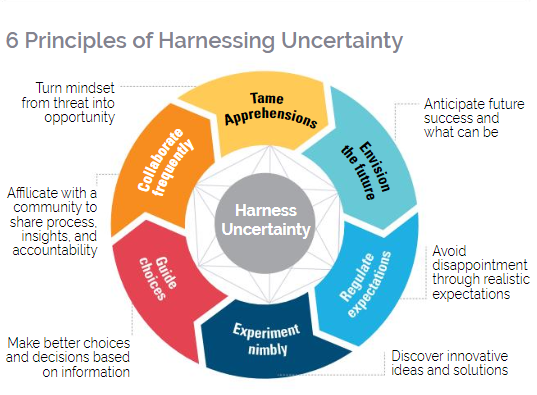Leaders need to harness uncertainty: Dave Ulrich

Dave Ulrich is the Rensis Likert Professor at the Ross School of Business, University of Michigan and a partner at The RBL Group, a consulting firm focused on helping organizations and leaders deliver value.
In an exclusive interaction with People Matters, Dave talks about jobs, changing nature of work, and reveals new leadership insights that lead to being better leaders, building shared leadership, and creating a personal leadership brand.
Here are the excerpts.
How do you see the current situation triggered by the COVID-119 pandemic in terms of jobs, employee well-being, business continuity, and the future of work?
The pandemic has dramatically affected the entire world like nothing we have seen. There has been much written about the impact of the pandemic on personal and work lives. The coronavirus has affected every person on earth—over seven billion people. Think about it! Other crises from world wars to famines to political revolutions to economic turmoil have affected only pockets of people, but no one seems immune to this virus. The common denominators of physical health, psychological well-being, and social support cut across geographic, religious, economic, and social borders.
Amid this pandemic and the environment of uncertainty and confusion, there are some common approaches leaders can adapt to help individuals and organizations navigate through the crisis. This is the time to ask the right questions and find solutions to them. How has the pandemic affected you? How are you feeling with pandemic consequences? How are you as an organization showing increased care for your customers? What have you learned during this crisis? Given current circumstances, what do you want most, which defines your success? What can you do now to make progress? What can we do now to explore new opportunities? As an organization, how can you create an environment of caring? Who can you thank today?
While each person responds differently to similar pandemic demands, these ideas might guide leaders as they help individuals and organizations navigate this (and other) crisis. I hope in the coming years, we will look back on these difficult times with a sense of awe at the insights and opportunities we gained from grappling with and overcoming our challenges.
Also Read: Companies that succeed amid COVID-19 will be those that prioritize people: Walmart’s Donna Morris
With 400 million full-time jobs lost due to the pandemic, according to ILO between April-June 2020, how can we rebuild and reimagine jobs amid the coronavirus crisis for businesses to stay future-ready?
Jobs and the nature of work has some basic principles that are the same and some that differ. The same principle applies: a job (or work) exists when someone is willing to pay for the product or service one produces. Business and HR leaders’ primary challenge is to create goods and services that will succeed in the marketplace. Without a marketplace, there is no workplace. And, with the series of cumulative crises (corona pandemic, racial strife, and economic downturn), the marketplace has pivoted expectations. Some jobs are growing (e.g., digital, technology, emotional caregiving) and others are clearly shrinking (travel, entertainment, advisory business). Employees, and organizations where they work, have a shared obligation and opportunity to reinvent to create success in the marketplace.
The impact of COVID-19 on work is far more profound than we think it is. How can employers, associations, and economies work together to improve the future of the job market?
I think that the ultimate accountability for work rests with the employee, with support from employers, associates, and governments who provide resources. In this pandemic, I think that the ultimate source of “peace” (personally and professionally) comes from within, not from outside.
Do you think the new work from home phenomenon can transform the job market? Will this give rise to a global competition for every single job role?
Working virtually is not new, but dramatically expanded. The boundaries of work are shifting from “place” to “values.” This means that no matter where one works (home, remote office, hotel, coffee shop, traditional home office, etc.), there are expectations that shape the boundaries of work. These expectations are about the value created for the customer. So the question is: no matter where you worked today, what did you do to create value for your organization’s customers? This question defines the emerging boundary of “doing” work. I also envision an ecosystem of where work is done but the connecting lines in the ecosystem are shared commitments to creating value for customers. Employees will have greater discretion about where and how they work, not about what work they do.
What are the most important leadership skills needed to succeed in the workforce, post-COVID-19? Which skills will be most challenging to teach at scale?
The concentrated challenges from the continual crises reveal new leadership insights that lead to being better leaders, building shared leadership, and creating a personal leadership brand. Let me propose Leadership Code 3.0 to capture 10 leader requirements for discovering and maximizing opportunities in crises:
1. Create information asymmetry by separating signal from noise
2. Harness uncertainty
3. Create the “right” culture (outside-in, the value of values)
4. Provide guidance to impact decision making
5. Personalize employee experiences
6. Hear others to express empathy (avoid “isms”)
7. Empower others to build their brand
8. Create psychological safety
9. Navigate paradox
10. Be transparent and renew
As a starting list, these ten insights build on our Leadership Code research and may apply to an individual wanting to be a better leader, to all leaders creating a leadership capability throughout an organization, and to an organization creating personal leadership brand beyond the work setting.
And, I think the paradox of soft skills will become even more critical. Over the years, we have worked with organizations to attain both technical or “hard” skills (like operational excellence, software engineering, market planning, financial analysis) and “soft” skills (such as resilience, cultural sensitivity, relationship savvy, and leadership).
Ideally, individuals have both hard and soft skills. Hard skills, often gained through formal training, are more discernible and measurable. But the softer skills acquired from experience often have a longer-term impact on results. Being technically proficient as a software engineer on a specific project is valuable, but knowing how to continue to excel as an engineer through countless interpersonal challenges, organizational upheavals, and broad market changes is essential. These “soft” skills are often more difficult to define, master, and deliver.
How do you see the job landscape five years down the line? Which jobs will be in demand and which ones you think can become redundant or transform?
The nature of uncertainty is that we don’t really know. No one could have predicted the challenges of COVID-19 in January 2020. I think leaders need to harness uncertainty and here are six ways to do so.
• Tame apprehensions
• Envision the future
• Regulate expectations
• Experiment nimbly
• Guide choices
• Collaborate frequently

In the 4th Industrial Revolution, data is a critical asset for every company. Do you think professionals with data literacy will be even more appealing to prospective employers than ever before?
Totally agree with information (not just data). We have worked for 14 months to create an Organization Guidance System that will offer business and HR leaders insights about which initiatives in talent, leadership, organization, and HR will deliver key results. We have recently completed the pilot and are sharing preliminary findings.
Organization Guidance System (OGS) that can be used by business and HR leaders to provide course-correcting to enable more effective organizations. An Organization Guidance System is a bold ambition. It combines and moves beyond scorecards that report what has happened, dashboards that offer current information, and predictive analytics that show what might happen into an integrated guidance system that enables more effective organizations.
The boundaries of work are shifting from ‘place’ to ‘values’. This means that no matter where one works (home, remote office, hotel, coffee shop, traditional home office, etc.), there are expectations that shape the boundaries of work. These expectations are about the value created for the customer
Read more such stories from the September issue of our e-magazine on 'Jobs: Now & Beyond’
















